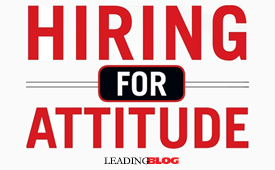6 Tips to Improve Your Hiring Process

ONE OF THE MOST significant ways a leader can impact their business is through the quality of their hiring, yet this is rarely listed as a critical leadership competency and often overlooked. In my experience, this is usually because the impact is not as immediately visible as for example when they make an investor presentation that goes badly or fails to convince the Board during a key presentation.
Yet the cost of poor hiring is considerable, not just in terms of hiring unsuitable candidates (time, money, reputation, impact on colleagues) but also in terms of the damage poor hiring processes can have on your organization. Candidates who experience an unsatisfactory hiring experience are considerably less likely to accept a job offer (especially the top quality hires facing a choice of offers that you will be most wanting to attract); and in addition candidates will share their hiring experience which will put off other applicants thus reducing your talent pool and also potentially impacting your reputation and brand image with current and potential customers.
The case for improving hiring competence within leaders and the organization is strong and here are six tips that will help you improve your hiring process and your quality of hiring:
- Calculate your cost of a poor hire. This will help set a clear business case for investing in improving your hiring hit rate. Costs include direct costs (time involved in hiring, interviewing and relocation expenses, salary during the learning phase in the role), indirect costs (impact on organization reputation of an incompetent or unmotivated employee, impact on colleagues of a poor hire) and opportunity costs (the difference between the contribution of this individual and a high performing individual).
- Invest in training for all hiring managers. Consider making this training compulsory for anyone involved in hiring and go one step further by requiring a level of competence to be demonstrated before authorizing the manager to undertake hiring for the organization. This may sound tough, but would you allow an unqualified electrician to rewire your home? Yet we allow unqualified managers to engage in hiring activities that not only may result in poor hiring decisions, and related costs, but also damage your reputation in the hiring, and wider, market place.
- Review your hiring process. Are all the elements properly templated so that you can perform consistently? How do you make hiring decisions? What information do you collect to inform these decisions? You should have quality job descriptions for all your roles which clearly describe the expected outcomes and performance. In addition, you should specify the skills, experience, and competencies required for superior performance. If these are not defined, you cannot hire to them, and your people cannot develop toward them. Consider expanding your selection process from a traditional face to face interview to include appropriate psychometrics, practical tests or experiences (coding, phone work, etc.) and behavioral or competency based interviewing techniques.
- Measure the effectiveness of your hiring. Measure the hiring process, including time to hire, cost of hire, quality of talent pool, time to become effective, etc. but also your hiring decisions, quality of candidates taken on in both the short and longer term. Make a habit of predicting the short and long term performance of your hires and then evaluating the accuracy of your predictions. Don’t limit yourself to external hires but include internal moves and promotions. Measure your retention and loss of talent.
- Review your talent attraction strategy and approach. How well does your website attract and communicate with potential hires? How well does your company communicate and live up to its employee value proposition to its existing employees? How well is this communicated and evidenced to potential hires? Evaluate your company both as an employer and a hirer – they are different. Put together an action plan for improvement.
- Invest in a strong onboarding process. Onboarding is frequently overlooked when hiring. Yet it can make the difference between a successful hire and a poor hire. Strong onboarding will shorten the time to effectiveness of a new hire which will impact on your bottom line. Also, it will increase the engagement of your new hire which improves your retention. Retention starts with the hiring process (did the hiring experience itself create a sense of connection with the company). It is strongly impacted by a new hire’s experience on their first day in the job and their first 90 days. Ensure that your onboarding processes give your new hire the best possible chance of success and your company the best possible chance of retaining them.
* * *This post is by
Lisette Howlett. She is the author of
The Right Hire: Attract And Retain The Best People, a licensed Sandler Trainer located in
London Central, and she has fifteen years of global change leadership and business development experience. Howlett is called upon by business owners of small and medium-sized companies for strategy and business development. Her experience includes financial services, technology, pharma/biotech, manufacturing, IT, media, recruitment, and professional services.
* * *

Like us on
Instagram and
Facebook for additional leadership and personal development ideas.



Posted by Michael McKinney at 12:01 AM
Permalink
| Comments (0)
| This post is about










